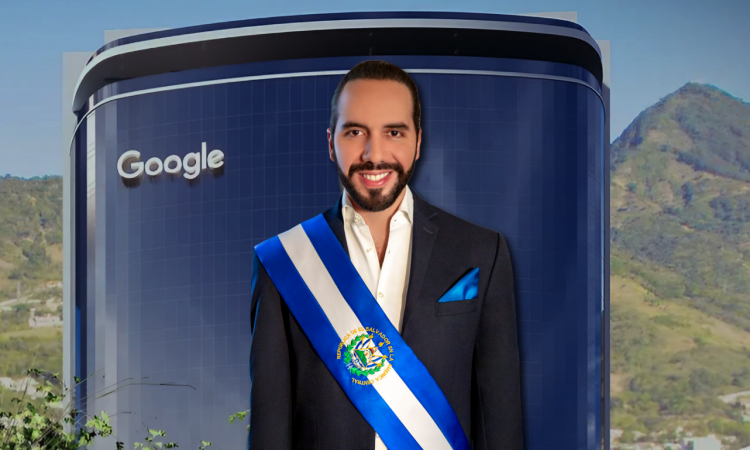Salvadoran President Nayib Bukele has made an intriguing offer: immediate citizenship for 5,000 intellectuals who wish to make the move. Albeit scant on details and merely an X post, his pitch poses a pertinent and fascinating question: when would this make sense for both the host nation and the new arrivals?
Even if we assume that Bukele can attract 5,000 “highly skilled scientists, engineers, doctors, artists, and philosophers,” a simple answer is not forthcoming. As with prospective employers and employees, the win-win gains from trade are far from guaranteed, given asymmetric information. The foreigners do not know El Salvador; El Salvador does not know the foreigners.
Watch on YouTube | Listen on Apple Podcasts | Watch on Bitchute | Listen to Spotify
Add to that misaligned objectives. Salvadorans want long-term taxpayers, investors, and entrepreneurs for economic development—in Bukele’s words, “a huge impact on [Salvadoran] society and the future of our country.” However, foreigners do not move to pay taxes; nor do they invest if the risk-return profile is unfavorable. Further, these new “citizens” will have zero patriotic affinity and likely self-segregate or barely step foot in El Salvador.
More than Just Intelligence
 At first glance, 5,000 high achievers seem like an obvious benefit and no-brainer. As explained in Hive Mind (2015) by economist Garett Jones of George Mason University, a nation’s intelligence quotient (IQ) is crucial to prosperity. El Salvador’s estimated average IQ is around 80. That is more than a standard deviation lower than estimates for Canada and the United States and insufficient for Singapore-style growth and a First-World economy.
At first glance, 5,000 high achievers seem like an obvious benefit and no-brainer. As explained in Hive Mind (2015) by economist Garett Jones of George Mason University, a nation’s intelligence quotient (IQ) is crucial to prosperity. El Salvador’s estimated average IQ is around 80. That is more than a standard deviation lower than estimates for Canada and the United States and insufficient for Singapore-style growth and a First-World economy.
El Salvador’s need for elevated human capital is dire, and migration is the fastest way to change a nation’s demographics—be it from people coming or going. However, even 5,000 gifted individuals with IQs over 120 (outliers in El Salvador) are a drop in the ocean of 6 million residents.
To catalyze development, the 5,000 individuals will need to integrate and echo their impact beyond that of a digital nomad. That includes:
- starting disruptive businesses;
- advocating for market liberalization;
- exemplifying elevated civic virtues;
- leading educational institutions.
If the 5,000 do the above, they can have a game-changing, outsized effect for the better. They can raise expectations, transparency, and literacy and thus incentivize talented Salvadorans to remain in their home country and attract more of the right foreigners to come.
Who Should Pack Their Bags?
A move to El Salvador is not for the faint of heart. My most striking memory from my time there was the number of security guards carrying machine guns. At a small rock concert, for example, locals were glad to have perhaps a dozen men in military-style uniforms near the entrance displaying their weapons.
The rule of law is wafer thin. In addition to censorship, Bukele has brushed aside the unmistakable constitutional prohibition on presidential reelection. Potential newcomers should know who they are dealing with and look beyond fawning media coverage of the self-described philosopher king. Consider that the touted bitcoin city in El Salvador, announced by Bukele two years ago, has failed to materialize. A few cryptocurrency die-hards moved and are still waiting, while some have already left.
Those with an eye on entrepreneurship should read World of Opportunity (2023) by Yusuf Amdani. Originally from Pakistan, he moved to neighboring Honduras in the early 1990s and has had tremendous success, shared in his autobiographical account. Chiefly, he advocates building a nation within a nation: investing in infrastructure, broadly defined, beyond a single enterprise.
There are clear advantages to putting down roots in a relatively small, Third-World nation. They include cheaper labor, less political correctness, fewer prohibitions, and the potential for greater influence in the aristocracy. Like Ecuador and Panama, El Salvador uses the US dollar, which makes international transactions less of a headache. El Salvador’s proximity to North America is also favorable to nearshoring and professional development.
You might want to game Bukele’s citizenship offer to get a second passport, part-time residence, or plan-B escape location. In that case, your expectations will be lower: visa-free travel, low-cost living, and options for hiding away. El Salvador meets these expectations, and her passport is surprisingly strong with access to the Schengen Area and European Union.
However, if you are serious about putting down roots, you will want to match the attributes that El Salvador needs. Beyond the Spanish language, that suggests an entrepreneurial mindset, a low time preference, leadership experience, and an ability to overcome imposter syndrome. This suggests the best candidates will be wealthy and/or educated individuals—including exiles—from struggling countries in Latin America such as Venezuela and nearby Nicaragua.
For a gifted Anglo to move to El Salvador, integrate, and come out better off is a tall order: extremely unlikely. Such people will find few employment prospects, struggle to come to grips with local customs, and either leave or cluster as English-speaking expat cliques. Those who stay will tend to construct enclaves that become islands of the First World, akin to San Miguel de Allende in Mexico and Roatán in Honduras.
Islands of development, hosting a few digital nomads, will not necessarily hurt El Salvador, although they could engender resentment. The children of expats will be better prepared to handle El Salvador. However, my personal observation is that they tend to return to the First World for markedly better employment and educational opportunities. That is to be expected when Salvadoran GDP per capita is about $6,000.
Bukele’s idea merits applause, but the sought-after win-win outcome for the long haul depends on the attributes of each person arriving. Not just any gifted person will do. This underlines the need for screening that facilitates a convergence of objectives and a high likelihood of integration. Identifying young people inclined toward cultural compatibility and ethical leadership in a potentially competitive, laissez-faire economy is easier said than done. Further, selectivity necessitates a large applicant pool, so the tax benefits offered need to be compelling and structured to encourage a long-term, physical presence.
 Join us in our mission to foster positive relations between the United States and Latin America through independent journalism.
Join us in our mission to foster positive relations between the United States and Latin America through independent journalism.
As we improve our quality and deepen our coverage, we wish to make the Impunity Observer financially sustainable and reader-oriented. In return, we ask that you show your support in the form of subscriptions.
Non-subscribers can read up to six articles per month. Subscribe here.

